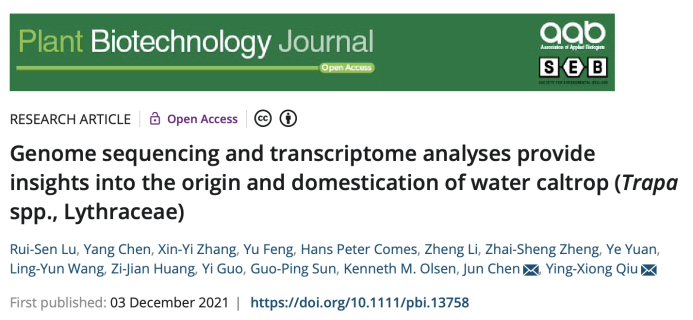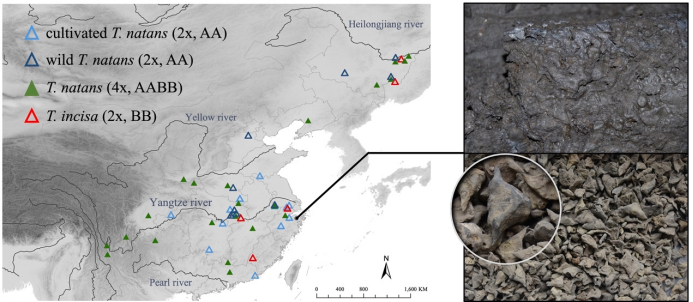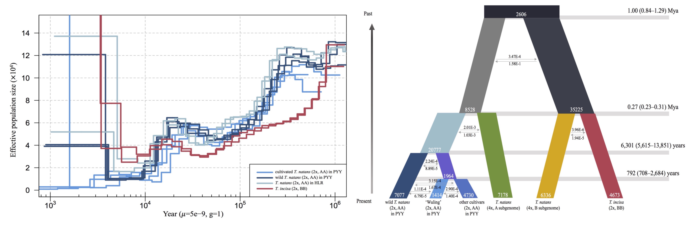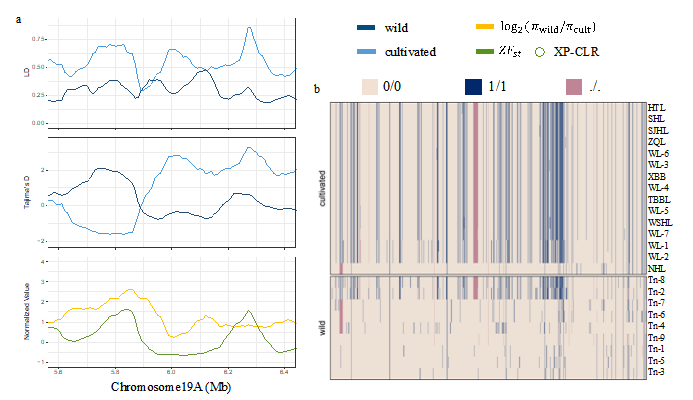
Title: Genome sequencing and transcriptome analyses provide insights into the origin and domestication of water caltrop (Trapa spp., Lythraceae)
Rui-Sen Lu, Yang Chen, Xin-Yi Zhang, Yu Feng, Hans Peter Comes, Zheng Li, Zhai-Sheng Zheng, Ye Yuan, Ling-Yun Wang, Zi-Jian Huang, Yi Guo, Guo-Ping Sun, Kenneth M. Olsen, Jun Chen, Ying-Xiong Qiu
First published: 03 December 2021
https://doi.org/10.1111/pbi.13758
Summary
Humans have domesticated diverse species from across the plant kingdom, however our current understanding of plant domestication is largely founded on major cereal crops. Here, we examine the evolutionary processes and genetic basis underlying the domestication of water caltrop (Trapa spp., Lythraceae), a traditional, yet presently-underutilized non-cereal crop that sustained early Chinese agriculturalists. We generated a chromosome-level genome assembly of tetraploid T. natans, and then divided the allotetraploid genome into two subgenomes. Based on resequencing data from 57 accessions, representing cultivated diploid T. natans, wild T. natans (2x and 4x) and diploid T. incisa, we showed that water caltrop was likely first domesticated in the Yangtze River Valley as early as 6,300 yr BP, and experienced a second improvement c. 800 years ago. We also provided strong support for an allotetraploid origin of T. natans within the past 230,000–310,000 years. By integrating selective sweep and transcriptome profiling analyses, we identified a number of genes potentially selected and/or differentially expressed during domestication, some of which likely contributed not only to larger fruit sizes but also to a more vigorous root system, facilitating nutrient uptake, environmental stress response, and underwater photosynthesis. Our results shed light on the evolutionary and domestication history of water caltrop, one of the earliest domesticated crops in China. This study has implications for genomic-assisted breeding of this presently underutilized aquatic plant, and improves our general understanding of plant domestication.
Link: https://onlinelibrary.wiley.com/doi/10.1111/pbi.13758










